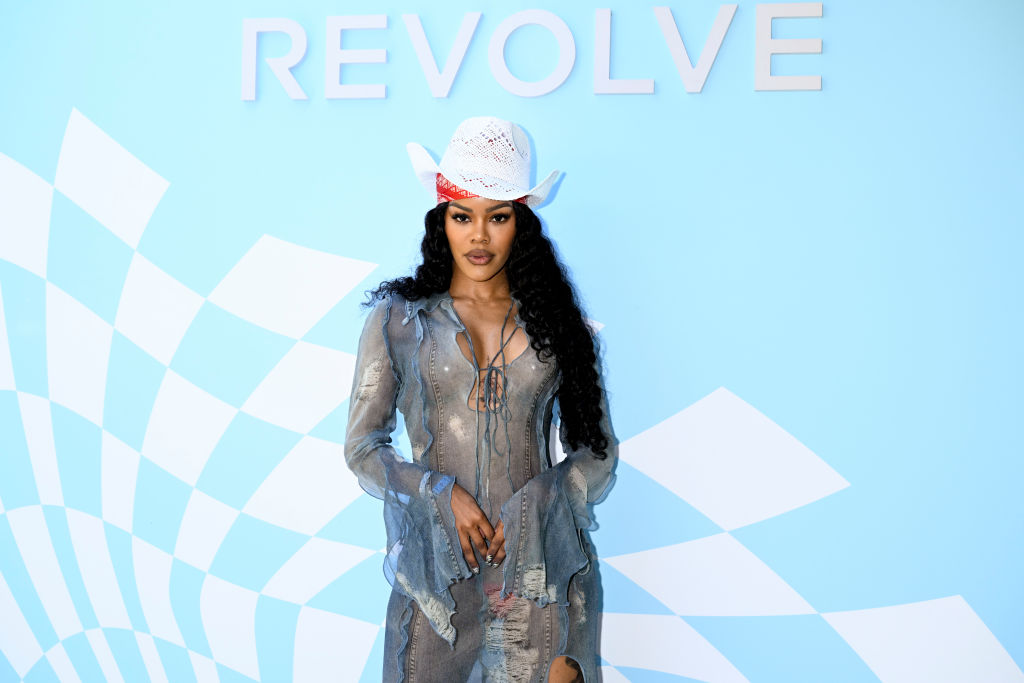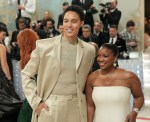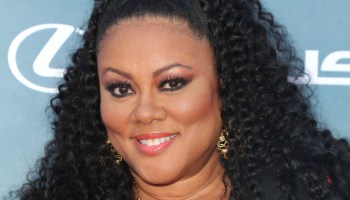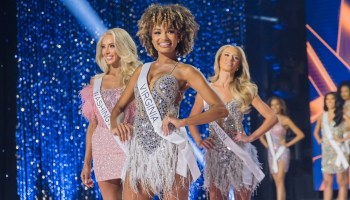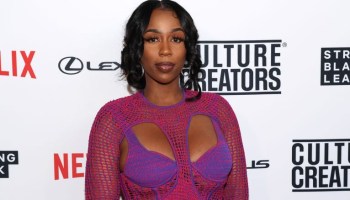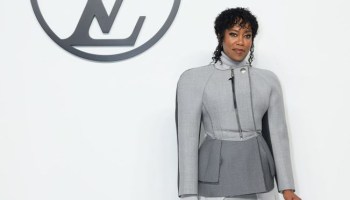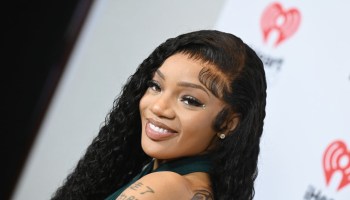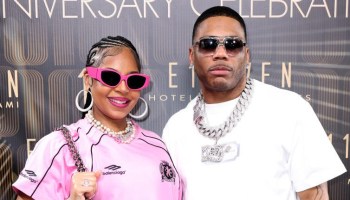Cicely Tyson and Kerry Washington recently sat down for an in-depth interview with the New York Times, where they discuessed series issues (like race relations in America and family rejection) and more light-hearted topics (like why Olive Pope always wears pants and so much white).
Despite their 43-year age difference, we learned that the Hollywood A-listers share many things in common. For example, both ladies have gone to great lengths to protect their private lives, and go through the same ritual when choosing a film role.
MUST READ: No Black & Gold At The 2013 Emmys! Kerry Washington & Don Cheadle Snubbed!
What was most evident throughout their conversation, however, was their passion for their chosen profession.
“I saw that I could not afford the luxury of just being an actress. So I made a choice to use my career as a platform to address the issues of the race I was born into,” Tyson said.
“What’s most exciting to me, as an actor, is that we empower people to be compassionate in ways that they might never expect,” Washington added. “When we step into someone else’s shoes, as actors, we allow the audience a window into a world they might normally ignore.”
MUST READ: Review: Cicely Tyson Requires Your ‘Trip To Bountiful’
Check out highlights from the intimate interview below and tell us your thoughts in the comment section.
On why Olivia Pope wears so much white:
NYT: Meanwhile, Kerry, you get the chicest wardrobe on TV. I’ve stopped counting the number of articles on Olivia’s white pants. Is all that attention justified, in terms of the character, or is fashion just fun?
KW: Oh no, the aesthetic of Olivia Pope is very thought through. Even when we do flashback episodes, when she worked at the White House. Then, she’s mostly dressed in Michael Kors and Ralph Lauren because you have to wear American designers when you work in the White House. But now that she works on her own, it’s a lot of Dior and Ferragamo and Gucci. Now she can wear European designers.
NYT: And the pants?
KW: We decided very early on that Olivia wears the pants, literally and figuratively, and I work very closely with Lyn Paolo, our costume designer.
NYT: So, the clothes aren’t something you simply put on?
KW: Even the palette is somewhat metaphorical. There was dialogue early on about Olivia wearing the white hat, and so I wanted to have her in white as a symbol of justice. But there’s something else, too: that palette of whites and creams, it looks different on a woman of color, and that hadn’t been seen before. There’s a way that I can wear white that somebody with a fairer skin tone can’t, so I take advantage of that. There’s even an emotional component to it: Olivia will not wear white when she is not the person who is just. She only wears white when she’s wearing the white hat.
On how they choose a movie role:
NYT: You’ve had some amazing film roles. Was it a hard decision to take on “Scandal,” knowing you’d be less available for film?
KW: When you read something extraordinary, when you read “Sounder,” for instance, you just say, “This role is the opportunity of a lifetime.” I had that experience when I read the pilot episode of “Scandal.” I’d never seen a woman like this on television before. And I wasn’t even thinking about race or the fact that I’d never seen an African-American woman as the lead of her own network show, but I knew that this smart, sophisticated, powerful and vulnerable woman was a tremendous opportunity.
CT: The same thing happens to me when I read a script: either my skin tingles or my stomach churns. When it tingles, I take it, and when my stomach churns, there’s no way I could possibly do it. No way. I would end up on a psychiatrist’s couch, and he would get all the money.
On why they don’t publicly talk about their private lives:
NYT: Let’s shift gears for a second — to something you both have in common. Neither of you speak publicly about your personal lives, which makes you rare creatures in the celebrity world.
KW: Miss Tyson and I just had a conversation about this.
CT: I am very protective of my family. I chose this business, they did not. And I never felt it was right to deprive them of their private lives. I have a nephew. I have many nephews. And I remember once, when he was very little, he was watching me on TV — looking at the television, looking at me — and finally saying: “What’s Aunt BooBoo doing in the television?” And I’ve seen what happens to the children of people in public professions. It’s very hard to get out of their shadows. Their lives are difficult.
NYT: Are you an Aunt BooBoo, too, Kerry? Is that what makes you private?
KW: Let me say it like this. There have to be some boundaries to maintain your artistry. If you don’t have a strong sense of who you are, it’s hard to build a character. So I’ve learned to hold on to a sense of myself and keep it private.
NYT: Even when people are hyperventilating to get pictures of you in your wedding dress?
KW: Even then. It’s so important that at home, I can just be me.
On their parents not wanting them to be actresses:
NYT: Another thing you have in common? None of your parents wanted you to be actors.
KW: My mother was devastated.
CT: Mine, too.
NYT: So, in segregated America, in 1950, what did your parents want you to do instead of “Sounder”?
KW: Who knew “Sounder” was going to happen?
CT: Exactly! Well, my mother was an introvert and quite religious. And we were brought up in the church. And when she learned that I wanted to act, she simply said: “You cannot live here and do that.”
NYT: She threw you out of the house?
CT: Oh, yeah. I didn’t say anything to her, but I made up my mind that acting was something I had to do for myself, so I found another place to live. My mother did not speak to me for two years. Refused to see me, refused to speak to me. And when I did my first play, an amateur production of “Dark of the Moon” at the Y in Harlem, I had the audacity to call my mother and invite her to come. And she did. And the moment I walked onstage, she thought she was whispering, but she said, “Oh, my God!” and I heard her clear as day. And when it was all over, my mother was standing at the exit, accepting congratulations. Can you imagine?
KW: Wow, what a great story.
NYT: And 50 years later, you and your parents go through the same dynamic?
KW: By the way, they had the same kind of turnaround, too. I was at a dinner last night, and my parents were sitting in the corner, warmly accepting congratulatory remarks. But at the time, my mother, who is a retired professor of education, and my father, who is a businessman, wanted me to go into a career that had some security. They did not want me to be a starving artist. I’m an only child. They were devastated by the idea that I might not be able to take care of myself and earn a living.
NYT: Plus, you went to Spence. You probably could have done anything.
KW: I was a child of an educator, and I was really encouraged to pursue my academics. And I think it’s allowed me to be a better actor because I approach my work as a social scientist. So I’m very grateful that my parents insisted.
At the end of their chit-chat, Washington had one request for Ms. Tyson: “I need you not to retire until I get to work with you.”
The 79-year-old starlet responded, “No retirement.”
RELATED STORIES
Kerry Washington Named Best Dressed Woman Of 2013
Kerry Washington Sings Duet With Jordin Sparks + 8 Other Actors Who Can Really Hold A Tune!
Check Out This Gallery
